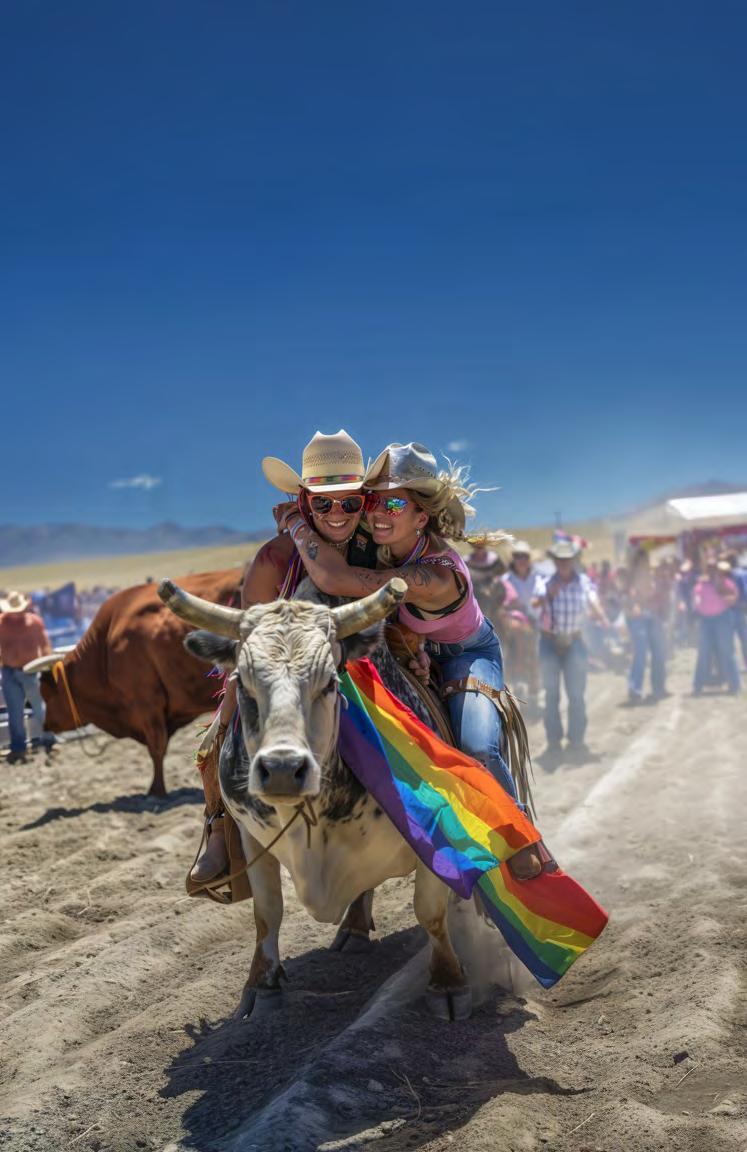

The LGBTQ+ locals choice Volume 24 #3 FabLasVegas.com THE NEVADA GAY RODEO BIG HORN 2024 RIDE WITH PRIDE

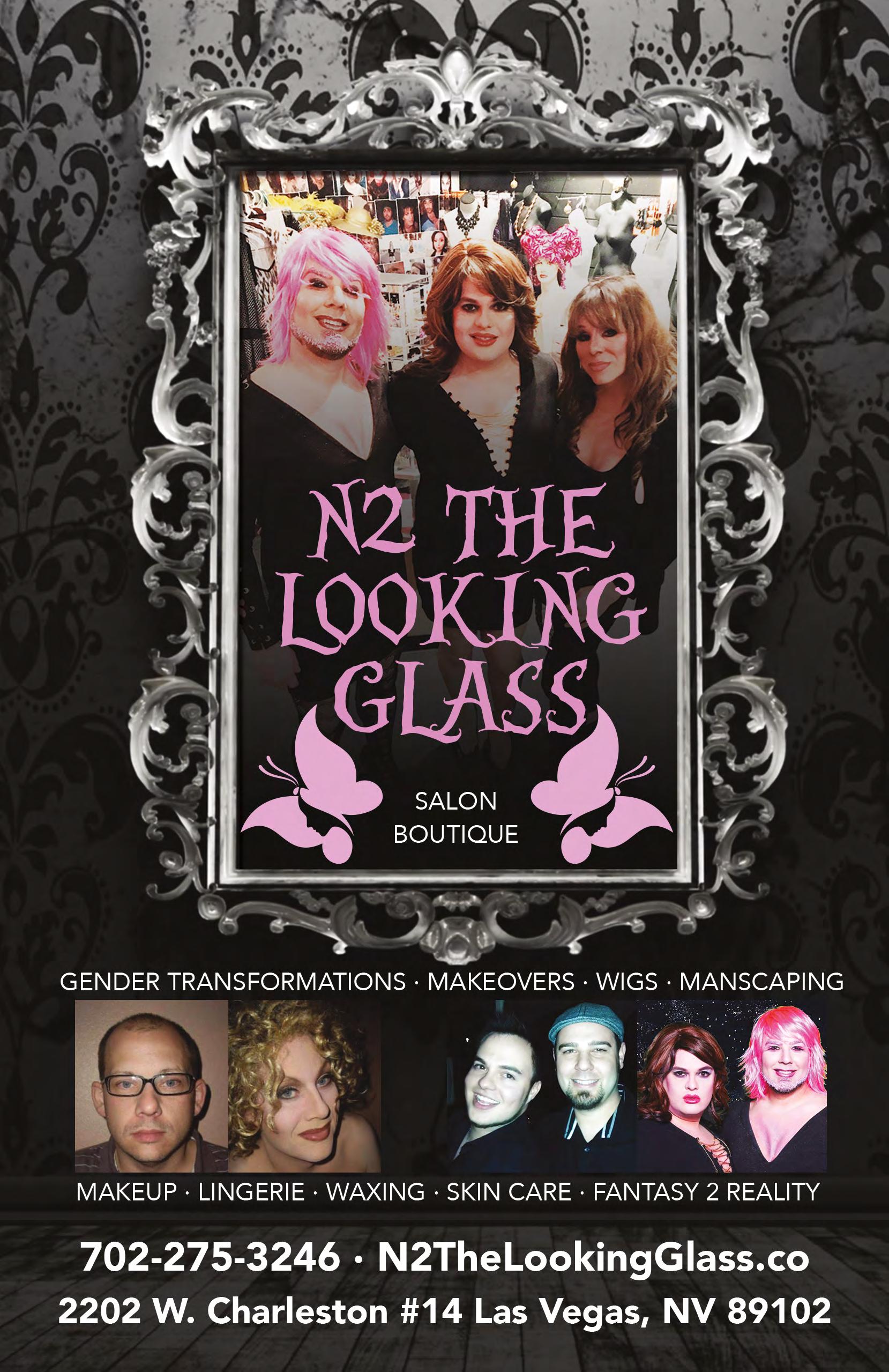
We extend our heartfelt appreciation to the exceptional individuals who form the backbone of Fab, shaping it into the dynamic platform it is today. Leading the charge is Editor-in-Chief Maria Carlson, whose editorial prowess sets the standard for excellence. Alongside her, Creative Director Tara Dale infuses every facet with innovative vision, while Managing Editor Mildred Bard ensures seamless coordination. Art Director Carrie Rad adds an aesthetic brilliance, complemented by the insightful contributions of our fabulous writers.
Behind the lens, Georgio Barrios skillfully guides our photography team, capturing the essence of our stories with finesse. A special accolade goes to our advertising team, spearheaded by Director of Sales and Marketing, Peter Ryan, whose strategic finesse has played a pivotal role in our success.
Our gratitude extends to both our outstanding team and our valued readers and subscribers. Your support has been instrumental in shaping Fab into the vibrant platform it is today. For those interested in advertising opportunities, connect with us at info@bmgus.com or call 702-907-0605. Embark on a journey of creativity and innovation with Fab – where collaboration promises mutual success.

4 Fab Vegas 26 GayVegas.com YEARS Vegas’ #1 travel site for LGBTQ+ @GayVegas #GayVegas www.EqualityNevada.org info@EQNV.org To secure equal rights and protections for LGBTQ Nevadans and their families. ™
Bundle Media Group Inc.
MAGAZINE

LGBTQ+ VEGAS EVENTS
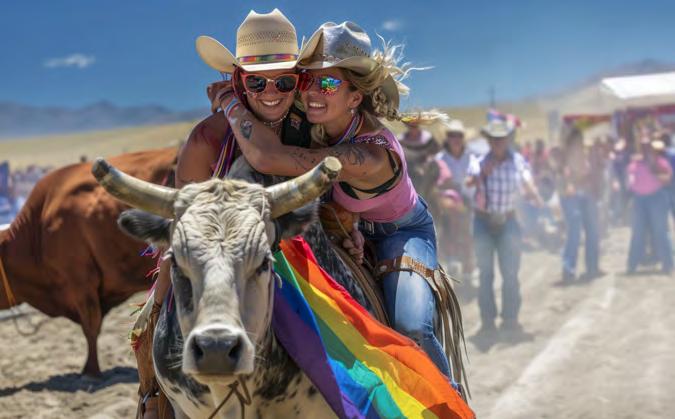
Experience BigHorn Rodeo Today!
The final day of the BigHorn Rodeo 2024 is here, and you won’t want to miss out on the action-packed festivities at Horseman’s Park in Las Vegas. Hosted by the Nevada Gay Rodeo Association (NGRA), this event is a celebration of rodeo culture, inclusivity, and community spirit. From thrilling rodeo competitions to lively entertainment, today promises an unforgettable experience for everyone.
Here’s a detailed look at what you can expect:
Unique Aspects of Gay Rodeo
One of the standout features of gay rodeo events is the inclusive nature of the competitions. Unlike traditional rodeos, gay rodeos see men and women
competing in the same events. This means you’ll witness the impressive sight of women bull riders and men participating in barrel racing, breaking traditional gender roles and showcasing diverse talents.
Rough Stock Events
The rough stock events are some of the most thrilling and challenging competitions in the rodeo, pitting contestants against powerful animals in tests of balance and strength.
Bull Riding: This is the ultimate test of skill and courage, where riders attempt to stay mounted on a bull weighing over a ton. The danger and excitement are palpable as riders are often thrown to the ground, with bull fighters stepping in to protect them.
Steer Riding: Ideal for new contestants, steer riding involves staying mounted on a less aggressive animal for six seconds. Riders are scored on their ability and the animal’s performance, with safety measures ensuring a fair and exciting competition.
Chute Dogging: This event gives novices a chance to compete in rough stock. The contestant and steer start in a bucking chute, and the goal is to wrestle the steer to the ground after crossing a 10-foot line.
Roping Events
Roping events require precision and teamwork, often involving significant training and highly skilled horses.
6 Fab Vegas
----------------------------------------------------------------------------------------------------------------------------------------------
----------------------------------------------------------------------------------------------------------------------------------------------

Simple, convenient and private STD and HIV testing is available now! SCAN TO ORDER YOUR KIT TODAY!
LGBTQ+ VEGAS EVENTS
Calf Roping on Foot:
Contestants start in a roping box and aim to lasso a calf as it’s released, a true test of timing and technique.
Break-Away Roping:
Mounted on horseback, the roper must lasso a calf and break the rope away from the saddle horn for a successful run.
Team Roping: This event involves two ropers – a header and a heeler – working together to catch a steer by the horns and heels, respectively. It requires exceptional coordination and horsemanship.
Speed Events
Speed events highlight the agility and speed of both horse and rider, racing against the clock in precise patterns.
Barrel Racing: Riders navigate a cloverleaf pattern around three barrels, aiming for the fastest time without knocking any barrels over.
Pole Bending: Contestants weave through six poles in a straight line, showcasing their horse’s agility and their own riding skills.
Flag Racing: Involves picking up a flag from one barrel, racing around a pole, and placing the flag in another barrel, all at high speed.
Camp Events
These events are unique to gay rodeos and are designed to be entertaining and accessible for all participants, often
featuring comical and lighthearted challenges.
Steer Decorating: Teams of two must tie a ribbon on a steer’s tail and remove a rope from its horns, requiring coordination and speed.
Wild Drag Race: Teams consist of a male, a female, and a “drag” competitor. They must guide a steer across a finish line, with the “drag” mounting the steer for the return trip, often resulting in humorous and unpredictable antics.
Goat Dressing: A fun and fast-paced event where teams put a pair of underwear on a goat, showcasing quick thinking and teamwork.
Today’s Highlights Rodeo Main Event
Time: Gates open at 10:30 AM, Grand Entry at 11:30 AM.
Tickets: $10 in advance, $15 at the gate. Free admission for first responders, military personnel, and veterans with ID.
Live Entertainment
1800 Tequila Festival Stage: Enjoy live performances throughout the day. Don’t miss Jimmy Emerson’s special performance at 3:45 PM, bringing comedy and cabaret to the rodeo.
Royalty Show and Awards
NGRA/IGRA Royalty Show: At 6:00 PM, celebrate the tradition and glamour of rodeo royalty.
Awards Presentation: At 8:00 PM, honor the champions of the weekend’s competitions. Join the Celebration Horseman’s Park is buzzing with excitement, and the BigHorn Rodeo is an event like no other. With a blend of traditional rodeo competitions, unique camp events, and a welcoming community spirit, today’s event is a must-see. Bring your family and friends to enjoy the festivities, shop at vendor stalls, and savor delicious food while experiencing the best of rodeo culture.
For more details and to secure your tickets, visit BigHorn Rodeo. Come and be part of this vibrant and inclusive celebration at the BigHorn Rodeo 2024!

8 Fab Vegas
-------------------------------------------------------------------------------------------------------------------------------------------------------------------------------------------------------------------------------------------------------------------------------------------

10 Fab Vegas BOULEVARD WASHINGTON AVENUE
SPRING MOUNTAIN ROAD
WEST TROPICANA AVENUE
SOUTH JONES
WEST DESERT INN ROAD
RUSSELL ROAD
WEST FLAMINGO ROAD
215 95
WEST SUNSET SUNSET ROAD
THE PHOENIX
FabLasVegas.com 11 MCCARRAN INTERNATIONAL AIRPORT EAST TWAIN CONVENTION CENTER DR SWENSON STREET AVENUE KAREN AVENUE KAREN AVENUE BONANZA RD SUNSET ROAD SPENCER SUNSET ROAD EAST PATRICK BOULEVA BONANZA ROAD EAST HACIENDA AVENUE FREMONT STREET DEAN MARTIN RUSSELL ROAD EAST CHARLESTON BLVD LAS VEGAS BOULEVARD NAPLES DR WEST CHARLESTON BLVD EAST DESERT INN RD EASTERN AV E EASTERN AV E EASTERN AV E EAST TROPICANA AVE EAST HARMON AVE LAS VEGAS BLVD “THE STRIP” PARADISE RD PARADISE RD EAST FLAMINGO RD EAST TROPICANA AVE EAST SAHARA AVE UNLV CENTER GIPSY GET BOOKED STORE PIRANHA QUADZ KUMA BATH BADLANDS SALOON ENTOURAGE BATH QUEEN LV BACKDOOR BENT INN THE GARAGE MARYS ADONIS BATH FUN HOG FLEX 15 15 515 515 15 215 THE GARDEN 95
Information for Teens: Staying Healthy and Preventing STDs
If you choose to have sex, know how to protect yourself against sexually transmitted diseases (STDs).
What are sexually transmitted diseases (STDs)?
STDs are diseases that are passed from one person to another through sexual contact. These include chlamydia, gonorrhea, genital herpes, human papillomavirus (HPV), syphilis, and HIV. Many of these STDs do not show symptoms for a long time. Even without symptoms, they can still be harmful and passed on during sex.
How are STDs spread?
You can get an STD by having vaginal, anal or oral sex with someone who has an STD. Anyone who is sexually active can get an STD. You don’t even have to “go all the way” (have anal or vaginal sex) to get an STD. This is because some STDs, like herpes and HPV, are spread by skinto-skin contact.
How common are STDs?
STDs are common, especially among young people. There are about 20 million new cases of STDs each year in the United States. About half of these infections are in people between the ages of 15 and 24. Young people are at greater risk of getting an STD for several reasons:
• Young women’s bodies are biologically more prone to STDs.
• Some young people do not get the recommended STD tests.
• Many young people are hesitant to talk openly and honestly with a doctor or nurse about their sex lives.
• Not having insurance or transportation can make it more difficult for young people to access STD testing.
• Some young people have more than one sex partner.
What can I do to protect myself?
• The surest way to protect yourself against STDs is to not have sex. That means not having any vaginal, anal, or oral sex (“abstinence”). There are many things to
consider before having sex. It’s okay to say “no” if you don’t want to have sex.
• If you do decide to have sex, you and your partner should get tested for STDs beforehand. Make sure that you and your partner use a condom from start to finish every time you have oral, anal, or vaginal sex. Know where to get condoms and how to use them correctly. It is not safe to stop using condoms unless you’ve both been tested for STDs, know your results, and are in a mutually monogamous relationship.
• Mutual monogamy means that you and your partner both agree to only have sexual contact with each other. This can help protect against STDs, as long as you’ve both been tested and know you’re STD-free.
• Before you have sex, talk with your partner about how you will prevent STDs and pregnancy. If you think you’re ready to have sex, you need to be ready to protect your body. You should also talk to your partner ahead of time about what you will and will not do sexually. Your partner should always respect your right to say no to anything that doesn’t feel right.
• Make sure you get the health care you need. Ask a doctor or nurse about STD testing and about vaccines against HPV and hepatitis B.
• Girls and young women may have extra needs to protect their reproductive health. Talk to your doctor or nurse about regular cervical cancer screening, and chlamydia and gonorrhea testing. You may also want to discuss unintended pregnancy and birth control.
• Avoid mixing alcohol and/or recreational drugs with sex. If you use alcohol and drugs, you are more likely to take risks, like not using a condom or having sex with someone you normally wouldn’t have sex with.
12 Fab Vegas
against sexually transmitted diseases (STDs).



What are sexually transmitted diseases (STDs)?
If I get an STD, how will I know?
STDs are diseases that are passed from one person to another through sexual contact. These include chlamydia, gonorrhea, genital herpes, human papillomavirus (HPV), syphilis, and HIV. Many of these STDs do not show symptoms for a long time. Even without symptoms, they can still be harmful and passed on during sex.
How are STDs spread?
Many STDs don’t cause any symptoms that you would notice. The only way to know for sure if you have an STD is to get tested. You can get an STD from having sex with someone who has no symptoms. Just like you, that person might not even know he or she has an STD.
Where can I get tested?
You can get an STD by having vaginal, anal or oral sex with someone who has an STD. Anyone who is sexually active can get an STD. You don’t even have to “go all the way” (have anal or vaginal sex) to get an STD. This is because some STDs, like herpes and HPV, are spread by skin-to-skin contact.
How common are STDs?
STDs are common, especially among young people. There are about 20 million new cases of STDs each year in the United States. About half of these infections are in people between the ages of 15 and 24. Young people are at greater risk of getting an STD for several reasons:
There are places that offer teen-friendly, confidential, and free STD tests. This means that no one has to find out you’ve been tested. Visit GetTested to find an STD testing location near you.
Can STDs be treated?
• Young women’s bodies are biologically more prone to STDs.
Your doctor can prescribe medicine to cure some STDs, like chlamydia and gonorrhea. Other STDs, like herpes, can’t be cured, but you can take medicine to help with the symptoms.
• Some young people do not get the recommended STD tests.
• Many young people are hesitant to talk openly and honestly with a doctor or nurse about their sex lives.
• Not having insurance or transportation can make it more difficult for young people to access STD testing.
• Some young people have more than one sex partner
What can I do to protect myself?
If you are ever treated for an STD, be sure to finish all of your medicine, even if you feel better before you finish it all. Ask the doctor or nurse about testing and treatment for your partner, too. You and your partner should avoid having sex until you’ve both been treated. Otherwise, you may continue to pass the STD back and forth. It is possible to get an STD again (after you’ve been treated), if you have sex with someone who has an STD.
tell your partner before you have sex. Although it may be uncomfortable to talk about your STD, open and honest conversation can help your partner make informed decisions to protect his or her health.
If I have questions, who can answer them?
• If you do decide to have sex, you and your partner should get tested for STDs beforehand. Make sure that you and your partner use a condom from start to finish every time you have oral, anal, or vaginal sex. Know where to get condoms and how to use them correctly. It is not safe to stop using condoms unless you’ve both been tested for STDs, know your results, and are in a mutually monogamous relationship.
If you have questions, talk to a parent or other trusted adult. Don’t be afraid to be open and honest with them about your concerns. If you’re ever confused or need advice, they’re the first place to start. After all, they were young once, too.
• Mutual monogamy means that you and your partner both agree to only have sexual contact with each other. This can help protect against STDs, as long as you’ve both been tested and know you’re STD-free.
Talking about sex with a parent or another adult doesn’t need to be a one-time conversation. It’s best to leave the door open for conversations in the future.
• Before you have sex, talk with your partner about how you will prevent STDs and pregnancy. If you think you’re ready to have sex, you need to be ready to protect your body. You should also talk to your partner ahead of time about what you will and will not do sexually. Your partner should always respect your right to say no to anything that doesn’t feel right.
It’s also important to talk honestly with a doctor or nurse. Ask which STD tests and vaccines they recommend for you.
• Make sure you get the health care you need. Ask a doctor or nurse about STD testing and about vaccines against HPV and hepatitis B.
Where can I get more information?
CDC
• Girls and young women may have extra needs to protect their reproductive health. Talk to your doctor or nurse about regular cervical cancer screening, and chlamydia and gonorrhea testing. You may also want to discuss unintended pregnancy and birth control.
• Avoid mixing alcohol and/or recreational drugs with sex. If you use alcohol and drugs, you are more likely to take risks, like not using a condom or having sex with someone you normally wouldn’t have sex with.
• The surest way to protect yourself against STDs is to not have sex. That means not having any vaginal, anal, or oral sex (“abstinence”). There are many things to consider before having sex. It’s okay to say “no” if you don’t want to have sex.
How You Can Prevent Sexually Transmitted Diseases www.cdc.gov/std/prevention/ Teen Pregnancy https://www.cdc.gov/ teenpregnancy/teens/ index.htm
What happens if I don’t treat an STD?
Some curable STDs can be dangerous if they aren’t treated. For example, if left untreated, chlamydia and gonorrhea can make it difficult— or even impossible—for a woman to get pregnant. You also increase your chances of getting HIV if you have an untreated STD. Some STDs, like HIV, can be fatal if left untreated.
What if my partner or I have an incurable STD?
Some STDs, like herpes and HIV, aren’t curable, but a doctor can prescribe medicine to treat the symptoms.
If you are living with an STD, it’s important to
CDC-INFO Contact Center 1-800-CDC-INFO (1-800-232-4636)
Contact wwwn.cdc.gov/dcs/ ContactUs/Form
HealthFinder.gov STD Testing: Conversation
Starters
https://healthfinder.gov/ HealthTopics/ Category/health-conditions-and-diseases/ hiv-and-other-stds/std-testing-conversationstarters
American Sexual Health Association Sexual Health and You http://www.iwannaknow.org/ teens/ sexualhealth.html
FabLasVegas.com 13
CS287360A
STD (SEXUALLY TRASMITTED DISEASES) INFO
SEXUALLY TRANSMITTED DISEASES
INFO, TESTING & RESOURCES
WHAT IS A SEXUALLY TRANSMITTED DISEASE?
Sexually transmitted infections (STIs), also referred to as sexually transmitted diseases (STDs), are infections that are commonly spread by sexual activity, especially vaginal intercourse, anal sex and oral sex.
WHAT IS HIV?
HIV is a virus that attacks the body’s immune system.It is usually spread by anal or vaginal sex or sharing syringes with a person who has HIV. The only way to know you have HIV is to be tested. Everyone aged 13-64 should be tested at least once, and people at high risk should be tested at least once a year. Ask your doctor, or visit gettested.cdc.gov to find a testing site. Without treatment, HIV can make a person very sick or may even cause death. If you have HIV, start treatment as soon as possible to stay healthy and help protect your partners.
Nevada is the fifth highest state in the United States for rates of new HIV diagnoses and is #1 in Syphillis
*According to CDC HIV Surveillance Report, 2017 and the CDC Sexually Transmitted Disease Surveillance Report, 2017 released in 2018

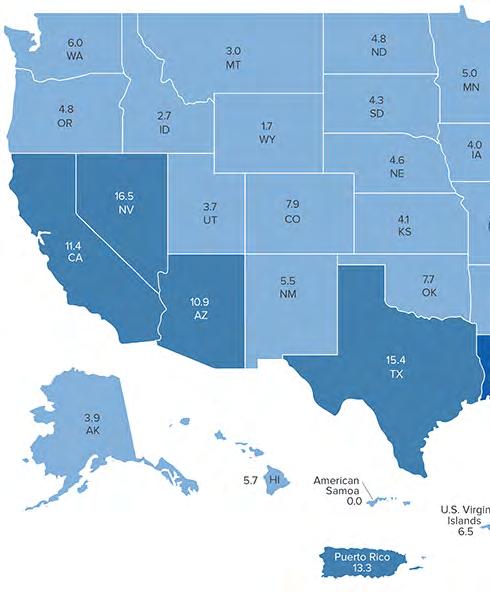
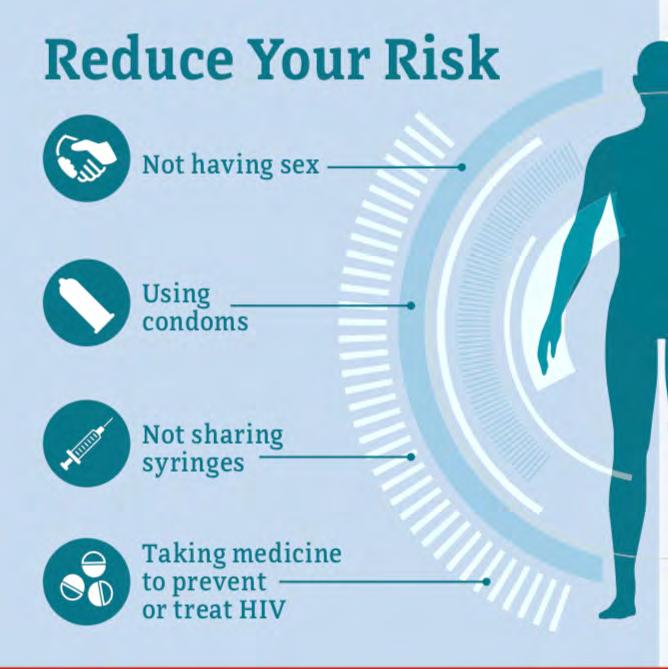
14 Fab Vegas
STD TESTING RESOURCE
SOUTHERN NEVADA HEALTH DISTRICT
ADDRESS 1: 280 S. Decatur Blvd. Las Vegas, NV 89107
HOURS: Monday – Friday 8 a.m. – 4:30 p.m. (closed 12 – 1 p.m.)
ADDRESS 2: 4201 W. Washington Ave. Las Vegas, NV 89107
HOURS: Monday – Wednesday 9 a.m. – 2:00 p.m.
The following services are offered at the Sexual Health Clinic:
1. Diagnosis and treatment of active or suspected cases of:
• Chlamydia
• Gonorrhea
• Syphilis
• HIV
• Trichomonas (females only)
• Bacterial Vaginosis (females only)
2. Free condoms and instruction on how to safely use them (both male and female condom) 3. Follow-up
Clients seeking treatment at the Sexual Health Clinic should know that the Health District is required to report cases involving assault or abuse to appropriate agencies.
HIV Testing: HIV antibody testing is a simple blood test performed by a trained professional. This procedure is strictly confidential. Counseling regarding the meaning of the test and its result take place before the actual testing to ensure you understand HIV infection and the testing procedure.
HIV testing procedure: Blood Test – Blood drawn from a vein is tested for HIV antibodies. This test is available at the Sexual Health Clinic (280 S. Decatur Blvd. Las Vegas, NV 89107 ), Monday through Friday 8 a.m. to 4 p.m. Please call (702) 759-0702 for more information. If you have questions, contact the clinic by phone at (702) 759-0702 or by email at SexualHealth@snhd.org
FabLasVegas.com 15
bloodwork 4. Hepatitis screening, diagnosis and treatment 5. High-risk behavior counseling 6. HIV Nursing Case Management 7. Injection series for syphilis medication 8. Partner notification 9. Referrals by private physicians 10. Sexual assault follow-up 11. Test results and couseling
COMMUNITY RESOURCES
16 Fab Vegas

17 Fab Vegas





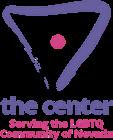




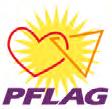











FabLasVegas.com 18
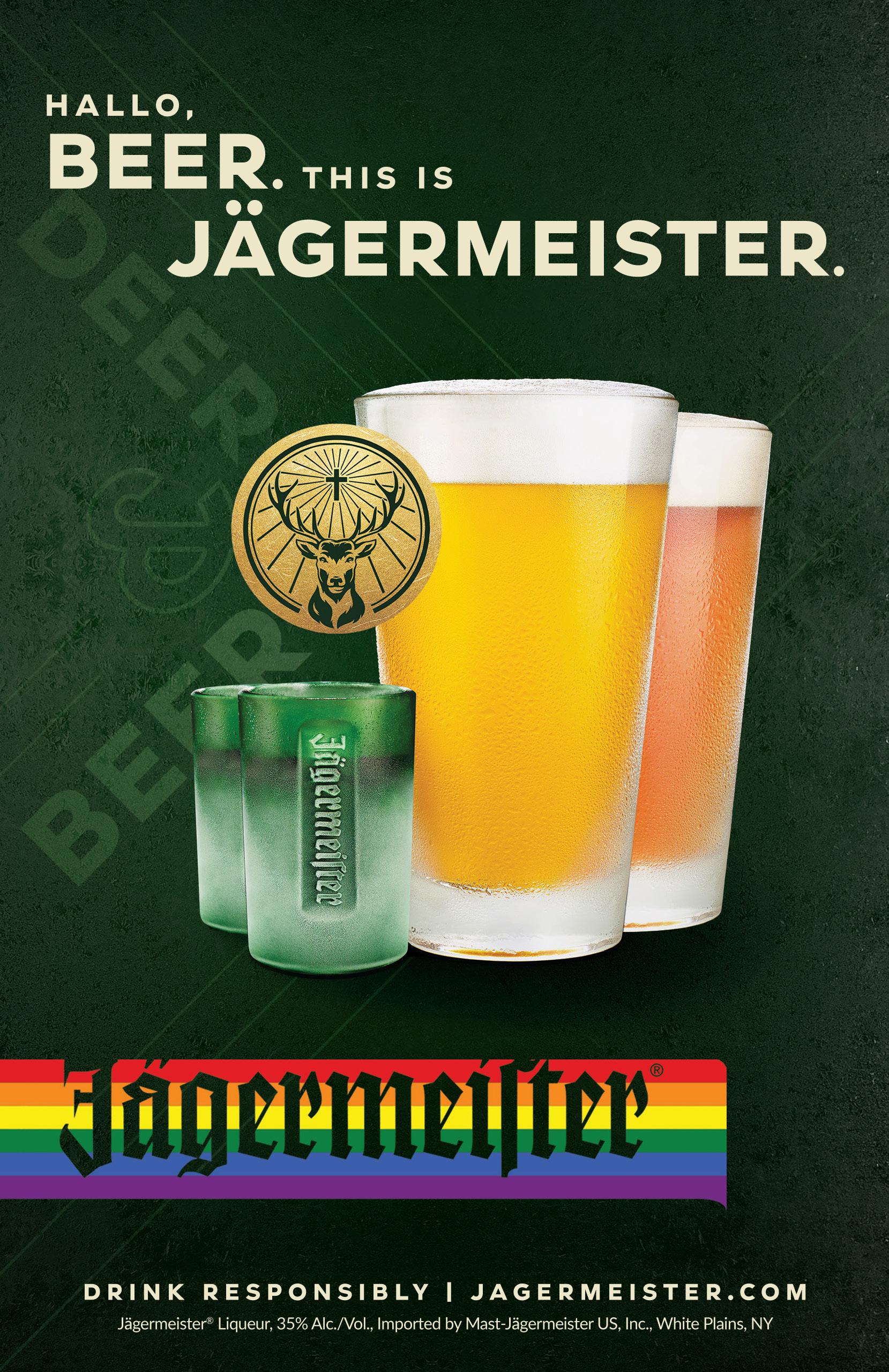
BELLA, BELLA, BELLAGIO

FOLLOW THE RAINBOW
™

















































